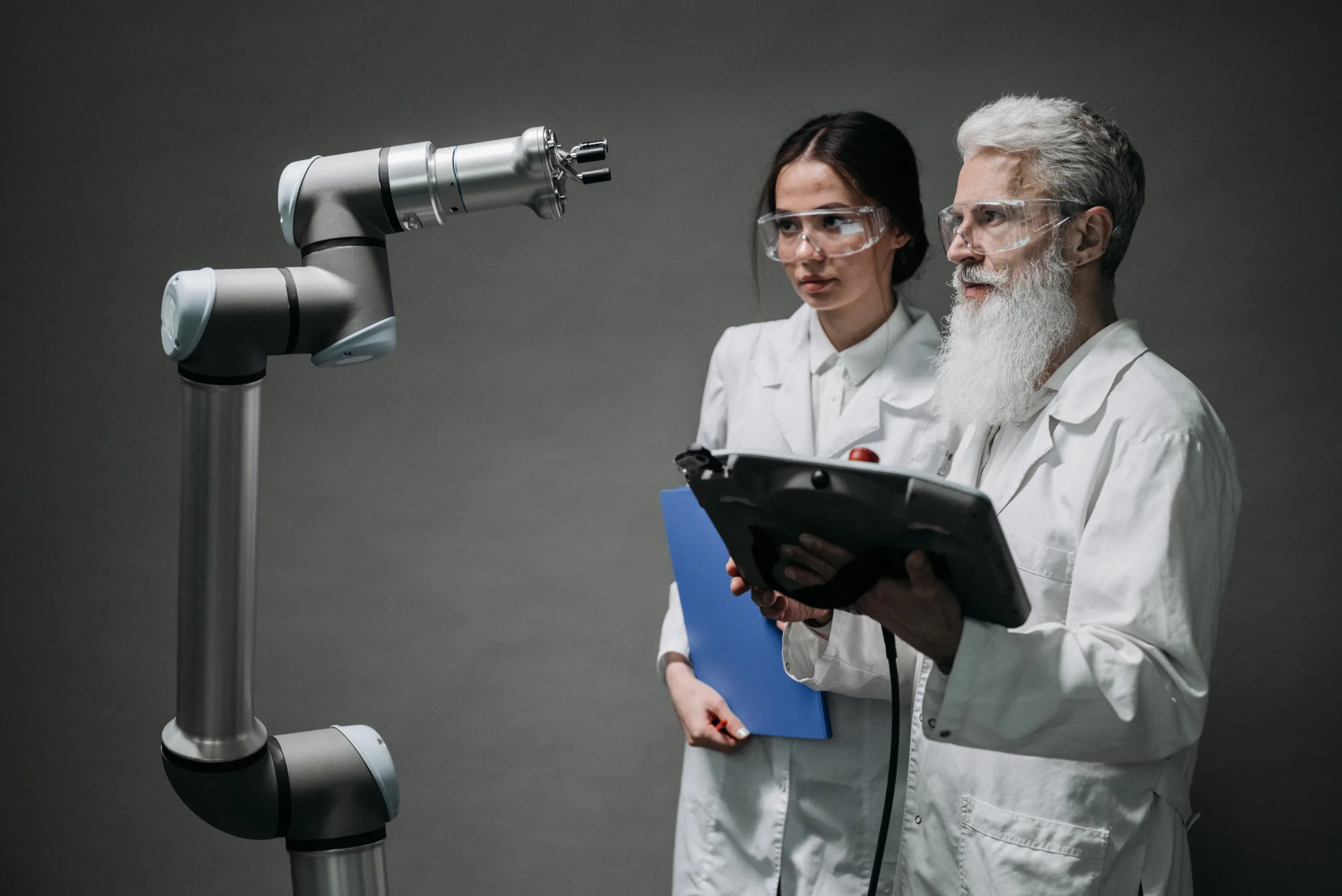Artificial Intelligence (AI) stands as a technological marvel, transforming industries and daily life. In this article, we delve into the intricacies of AI, exploring its applications, challenges, and the impact it brings, all centered around the keyword “artificial intelligence.”
1. The Essence of Artificial Intelligence
What is Artificial Intelligence?
Discover the core definition of AI, a technology aiming to replicate human intelligence and perform intricate tasks.
The Evolution of Artificial Intelligence
Trace the evolutionary journey of AI, from its conceptualization to the present, and explore its ongoing impact on diverse industries.
2. The Dynamic Types of Artificial Intelligence
Narrow AI vs. General AI
Distinguish between Narrow AI and General AI, understanding how each serves distinct purposes in the AI spectrum.
Machine Learning and Deep Learning
Explore the subsets of AI – Machine Learning and Deep Learning – integral to its functionality and advancements.
3. AI in Action: Applications in Key Industries
Healthcare’s AI Revolution
Explore how AI is reshaping the healthcare landscape, from predictive analytics to personalized treatment plans.
AI’s Impact on Finance
Understand the role of AI in finance, contributing to fraud detection, algorithmic trading, and superior customer service.
Educational Transformations with AI
Discover how AI is revolutionizing education through personalized learning and adaptive assessment tools.
Marketing Strategies Powered by AI
Uncover the applications of AI in marketing, optimizing campaigns and providing insights into consumer behavior.
4. Ethical Considerations in Artificial Intelligence
Navigating Ethical Dilemmas
Explore the ethical considerations surrounding AI, addressing concerns such as bias in algorithms and data privacy.
Job Displacement Worries
Delve into concerns about job displacement due to AI, emphasizing the importance of proactive reskilling and upskilling.
Tackling Bias in AI Algorithms
Understand the challenges associated with biases in AI algorithms and efforts to ensure fairness and equality.
5. Embracing the Benefits of AI
Boosting Efficiency and Productivity
Learn how AI streamlines processes, automates tasks, and enhances overall efficiency for businesses.
Advanced Problem-Solving Capabilities
Explore how AI’s analytical capabilities contribute to advanced problem-solving, fostering breakthroughs in various fields.
Personalization Through AI
Discover how AI enhances user experiences by tailoring services and recommendations based on individual preferences.
6. AI in Daily Life: Convenience and Innovation
Virtual Assistants at Your Fingertips
Explore the impact of virtual assistants like Siri and Alexa, making daily tasks more convenient through voice command.
AI-Powered Smart Homes
Understand how AI contributes to smart homes, adapting to user preferences in devices like thermostats and security systems.
Predictive Text and Recommendations
Learn about AI algorithms analyzing user behavior to provide predictive text suggestions and personalized recommendations.
7. Future Trends: AI Innovations on the Horizon
Integration with Other Technologies
Explore the future integration of AI with other technologies, creating a more interconnected and intelligent world.
AI in Robotics: The Next Frontier
Understand the evolving role of AI in robotics, contributing to advancements in tasks ranging from manufacturing to healthcare.
Continued Advancements in Machine Learning
Discover the ongoing advancements in machine learning algorithms, promising more accurate predictions and improved decision-making.
8. The Pivotal Role of Data in AI
The Importance of Quality Data
Understand how the success of AI depends on the quality of data it is trained on, emphasizing the need for clean, relevant, and diverse datasets.
Safeguarding Data Privacy
Explore concerns surrounding data privacy in the age of AI, emphasizing the establishment of robust data protection measures.
9. AI and Creativity: A Synergistic Blend
AI-Generated Art and Music
Delve into the intersection of AI and creativity, where algorithms generate art and music, challenging traditional notions.
Collaboration Between Humans and AI
Explore the potential for collaborative endeavors, where humans and AI work together to amplify creativity and innovation.
10. Job Market Dynamics: Adapting to AI
Reskilling and Upskilling Initiatives
Address the impact of AI on jobs and the importance of reskilling and upskilling programs to prepare the workforce for the future.
Emerging Career Opportunities in AI
Explore the new career paths emerging in AI development, machine learning, and data science.
11. Strategic Business Integration of AI
Gaining a Competitive Edge
Understand how businesses incorporating AI strategically gain a competitive advantage by optimizing processes and enhancing customer experiences.
Challenges in AI Implementation
Explore challenges businesses face in implementing AI, including costs, resistance to change, and the need for skilled professionals.
12. Government Guidelines: Shaping Ethical AI Development
The Imperative Need for Ethical Guidelines
Highlight the significance of establishing ethical guidelines by governments and organizations to ensure responsible AI development.
Ensuring Responsible AI Development
Emphasize the role of transparency, accountability, and regular audits in promoting responsible AI development.
Frequently Asked Questions (FAQs) on Artificial Intelligence
- Is Artificial Intelligence dangerous?
- AI itself is not inherently dangerous. It depends on how it is developed and used. Ethical guidelines and responsible deployment are crucial to mitigate risks.
- How can AI benefit businesses?
- AI can benefit businesses by optimizing processes, predicting market trends, and enhancing customer experiences, leading to a competitive advantage.
- What skills are essential for a career in AI?
- Skills in AI development, machine learning, and data science are essential for a successful career in the AI field.
- Will AI replace human jobs?
- While AI may automate certain tasks, it also creates new job opportunities. Reskilling and upskilling are key to adapting to the changing job market.
- How can individuals protect their privacy in an AI-driven world?
- Individuals can protect their privacy by being cautious about sharing personal information and advocating for robust data protection measures.
- What are the future trends in AI?
- Future trends in AI include increased integration with other technologies, advancements in machine learning, and a growing role in robotics.
- How is AI contributing to environmental sustainability?
- AI contributes to environmental sustainability by optimizing energy consumption, monitoring resources, and reducing overall carbon footprint.









